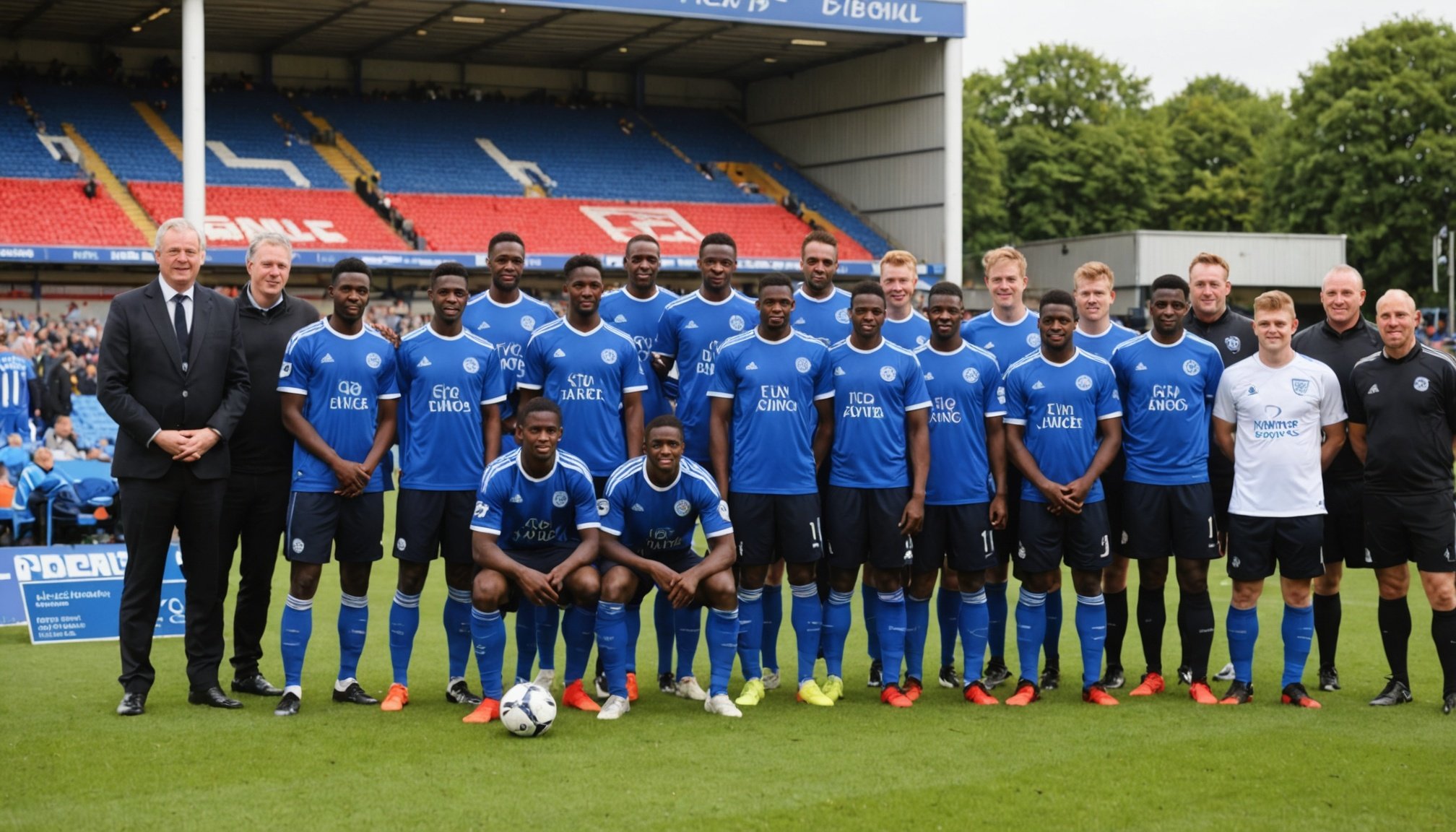In recent years, the relationship between UK football clubs and their local communities has come under scrutiny. With rising ticket prices and a focus on commercial success, many fans feel disconnected from their clubs. To combat this, clubs must prioritize building strong community relations. A strong bond with local supporters not only enhances the club’s reputation but also fosters loyalty and boosts attendance. This article explores various strategies that UK football clubs can implement to improve their community relations and cultivate a loyal fan base.
The Importance of Community Engagement
Community engagement is vital for football clubs, as it helps to create a sense of belonging and shared identity among fans. When you consider a club’s role in the local area, it becomes clear that a football club is more than just a team; it is part of the community’s fabric. A positive relationship with local supporters can lead to increased attendance, merchandise sales, and overall support.
Topic to read : Illuminating Performance: How Artificial Lighting Influences Evening Football Matches and Player Efficiency
Additionally, engaging with the community allows clubs to understand the needs and interests of their fans better. Clubs can tailor their initiatives to reflect local values and aspirations. This can translate into meaningful projects that resonate with the community. For instance, a club that actively supports local charities or runs youth programs can build goodwill and trust among supporters.
Moreover, community engagement can also enhance a club’s image and attract potential sponsors. Brands are increasingly looking for partnerships that showcase their commitment to social responsibility. By engaging with the community, clubs can present themselves as responsible and caring organizations, making them more appealing to potential sponsors.
In the same genre : Unlocking the Game: The Impact of Sports Analytics on Real-Time Decision Making in Football Matches
Ultimately, prioritizing community relations can deliver long-term benefits, both on and off the pitch.
Establishing Community Programs
To strengthen community relations, UK football clubs can establish various programs that target different demographics. This can include youth engagement initiatives, educational programs, and health-focused activities. By reaching out to diverse groups, clubs can create a broad support base.
Youth programs are particularly effective in fostering local support. By offering coaching clinics, after-school activities, and mentorship opportunities, clubs can engage with the younger generation. This not only helps develop football skills but also instills a sense of loyalty to the club from an early age. When children have positive experiences with a club, they are more likely to grow into lifelong supporters.
Additionally, educational programs that focus on issues like health, nutrition, and teamwork can position clubs as leaders in their communities. Such initiatives can include workshops for schools, partnerships with local health organizations, or even hosting educational seminars at the club’s facilities. By investing in the community’s future, clubs demonstrate commitment and responsibility.
Furthermore, health-focused activities can involve organizing community sports events, fitness classes, or wellness clinics. These initiatives not only promote a healthier lifestyle but also encourage local residents to visit the club’s facilities, establishing a connection that goes beyond mere spectator sports.
Utilizing Social Media and Digital Platforms
In today’s digital age, social media and online platforms are powerful tools for engaging with communities. UK football clubs can leverage these platforms to foster connections with fans, share news, and promote community initiatives. Social media provides an ideal space for clubs to interact with supporters, receive feedback, and showcase their community work.
Clubs should maintain an active presence on popular platforms like Facebook, Twitter, and Instagram. By sharing content that highlights community involvement, clubs can demonstrate their commitment to supporting local initiatives. Regular updates on community programs, charity events, and fan engagement activities can help build a narrative that fans can easily identify with.
Moreover, clubs can create online forums where fans can share their ideas and concerns. This not only fosters a sense of ownership among supporters but also provides valuable insights for the club’s management. Engaging with the community in a two-way conversation can enhance transparency and trust.
Digital platforms also provide opportunities for innovative campaigns. For example, clubs can run fundraising drives for local charities, encouraging fans to participate virtually. By setting goals and showcasing progress online, clubs can create a sense of collective effort that strengthens community ties.
Additionally, live streaming community events or hosting Q&A sessions with players can further enhance engagement. Such initiatives allow fans to feel closer to their club and its players, fostering a deeper emotional connection.
Strengthening Partnerships with Local Organizations
Collaborating with local organizations is another effective way for UK football clubs to enhance their community relations. By forming partnerships with schools, charities, and local businesses, clubs can amplify their community impact and create a network of support.
Schools represent a crucial partnership opportunity. By working together, clubs can facilitate educational programs, provide resources for physical education, and host student events. These collaborations can foster a sense of pride among students and their families, leading to increased support for the club.
Charities are also key allies for clubs looking to strengthen community ties. By sponsoring local charity events or organizing joint fundraising activities, clubs can demonstrate their commitment to social responsibility. This not only builds goodwill among supporters but also enhances the club’s reputation within the community. Positive associations with local charities can strengthen public perception and expand the club’s reach.
Engaging with local businesses can also provide mutual benefits. By supporting local enterprises, clubs can foster a sense of community loyalty. For example, collaborating on promotional events or offering discounts to fans can enhance the fan experience and encourage local commerce. In turn, businesses may promote the club within their networks, further strengthening local support.
Overall, these partnerships create a collaborative environment that benefits all parties involved, reinforcing the club’s commitment to its community.
In conclusion, improving community relations is essential for UK football clubs seeking to foster local support. By engaging with their communities through programs, social media, and partnerships, clubs can build lasting connections with fans. A strong bond with local supporters not only enhances the club’s reputation but also leads to increased loyalty and attendance.
As football clubs recognize the importance of their role within the community, they have the opportunity to shape the future of the sport. By prioritizing community engagement and understanding the needs of their supporters, clubs can not only improve their standing within the community but also secure their position as integral parts of local culture. The path forward is clear: invest in community relations to reap the long-term benefits that come from a loyal and supportive fan base.











